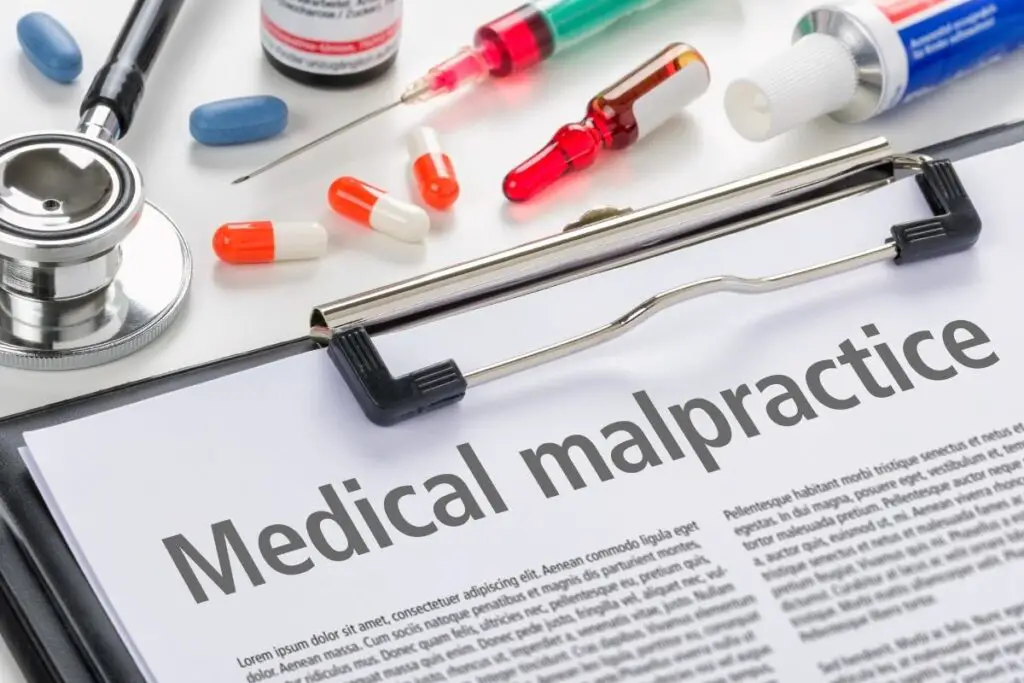Although they are uncommon, sentinel events are always a possibility in healthcare facilities. It can be scary to think about, but you and your loved ones should always be prepared just in case one were to occur. This becomes even more important with age, as visits to healthcare centers can become more common.
While they can happen to anybody, the most common patients who experience sentinel events are infants and senior citizens. This is due to both the nature of the events and the frequency of healthcare visits for these age groups. Although you can never guarantee one won’t occur to you or your loved ones, understanding what’s considered a sentinel event and what your options are is essential to taking the right steps towards healing and hopefully protecting future patients from experiencing the same.
What is a Sentinel Event?
A sentinel event is an incident that results in severe temporary harm, permanent harm, or death to a patient. The harm could be either physical or psychological and is not primarily related to the patient’s illness or underlying condition. These events uncover weaknesses in the healthcare system and could range from careless accidents to serious medical errors.
Although the term “sentinel event” typically refers to a situation harming a patient, it could also be used to describe harm to staff or visitors within the healthcare facility. A sentinel event speaks to the safety of a healthcare center, so any situation that could be considered unsafe and preventable falls into this category and should be looked into further.
Sentinel Events Joint Commission
The Joint Commission, a healthcare accrediting agency, is committed to ensuring quality care and safety to patients, which is why they’ve established a Sentinel Events Policy. The Sentinel Events Policy defines a sentinel event and helps hospitals and other healthcare facilities recognize errors and improve safety in the future. Although facilities aren’t obligated to report incidents, they are highly encouraged to do so. Even if the event is not reported to the Joint Commission, organizations are still required to conduct their own root cause analysis.
In order to provide the best care possible for patients, healthcare organizations should have a sentinel events policy of their own. This policy can be based on the Joint Commission’s policy and definitions, although it should be relevant to the patient population at each facility. Individual sentinel events policies should also be consistent throughout the entire organization in order to clearly define when incidents should be escalated and reported.
By partnering with healthcare organizations to record and analyze dangerous or harmful events, the overall safety of patients can be much improved. This not only holds organizations accountable for careless and preventable accidents, but it also helps organizations to understand what practices should be adjusted or reevaluated to better protect patients in the future.
9 Examples of Sentinel Events
Sentinel events can come in many forms. Whether it comes about due to a careless error or a true accident, being prepared for different events can help you stay aware of situations and know exactly what to do in case one were ever to occur.
Falls
Although they weren’t added to the Joint Commission’s definition of a sentinel event until January of 2021, falls are currently one of the most frequent sentinel events reviewed by the organization. The Joint Commission doesn’t have an official definition of a fall; however, one should be established within an organization. In order for the fall to be considered a sentinel event by the Joint Commission, the patient would have had to experience significant injury, required additional treatment (such as surgery, casting, or ongoing care), or death as a result of the fall.
Delay in Treatment
Delay in treatment is one of the other most common sentinel events reported to the Joint Commission. This event is defined as a patient not receiving the treatment that was ordered in the timeframe that was ordered. A delay in treatment could result in a delay in diagnosis or follow-up care to prevent further harm or death.
Unintended retention of a foreign object
Unfortunately, unintended retention of a foreign object is also a common sentinel event reported to the Joint Commission. Unintended retention of a foreign object is when a foreign object is left inside the body of a patient during an invasive procedure. This can cause, at minimum, additional procedures to remove the foreign objects. In the most serious cases, unintended retention of a foreign object can lead to patient death.
If the patient survives and requires additional treatment to correct the situation, it can still harm them physically and psychologically. It will also likely lengthen their recovery period. The unplanned additional procedure also occupies the time of healthcare workers that could be attending to other matters for other patients.
Wrong-site surgery
Wrong-site surgery is a very serious yet preventable sentinel event. Wrong-site surgery is defined as a healthcare professional performing surgery on the wrong area of a patient’s body. The most common reasons for this kind of event occurring is incomplete paperwork or not following surgery protocol (which typically includes double-checking correct location and other critical information about the procedure). When an organization reports a wrong-site surgery, one of the most common corrective actions taken is requiring more than one physician to confirm the surgery site before the procedure is allowed to begin.
Suicide/Self-Harm
Suicide is considered a sentinel event when it happens either on the healthcare facility’s premises or within 72 hours of patient discharge. Self-harm is considered a sentinel event when any amount of harm is self-inflicted by a patient while under the care of a healthcare facility. Both of these events are considered preventable and may reflect on the quality and availability of mental health services at a healthcare organization.
Assault
Assault – including rape, homicide, and other forms of violence – is considered a sentinel event when it results in death, severe temporary harm, or permanent harm. This could be a patient assaulting another patient, a patient assaulting a healthcare worker, or even a healthcare worker assaulting a patient. Because assault can include so many different situations, every event report is an opportunity for the organization to reevaluate its policies to make the facility safer.
Fire
Fires are thankfully fairly rare in healthcare facilities; however, they are still possible. Fires are typically preventable and could be a result of an electrical malfunction, human error, or a variety of other factors. Even if the fire is small, it is still a huge risk to patients and healthcare workers due to the heat and the unexpected smoke inhalation. Most healthcare facilities implement fire protocol and sprinkler systems in order to mitigate the damage from accidental fires on the premises.
Medication Management/Error
Errors in medication and medication management are considered sentinel events if the error results in death, permanent harm, or severe temporary harm. Examples of related harm can include coma, paralysis, or permanent loss of function as a result of the medication error. The medication error could be giving a patient the incorrect medication, the incorrect dosage, or not giving the patient the medication in time to prevent or lessen harm.
Clinical Alarm Response
Many medical devices have alarms to signal when a patient needs attention; clinical alarm response refers to healthcare workers appropriately responding to these alarms. These alarms often signify a patient needing additional treatment or immediate care, so it’s critical that they are monitored at all times, despite the alarm fatigue that many healthcare workers experience. If an alarm isn’t appropriately responded to, leading to death or harm of the patient, it can be considered a sentinel event.
Sentinel Event Reporting
While it’s not required by the organization itself, the Joint Commission encourages medical facilities to report all sentinel events. However, if an incident occurs, the event can also be reported by the patient or family of the patient. On average, around 75% of sentinel events are reported voluntarily by the facility itself, while the remainder are reported by patients and/or their families.
When a sentinel event is reported, the Joint Commission launches a full analysis and investigation into the event. This helps to uncover the root cause of the error or accident and then evaluate strategies to prevent the event from occurring again in the future. By reporting an incident to the Joint Commission, corrective actions can be determined, reducing the number of sentinel events at that facility in the future.
If a sentinel event occurs with you or your loved one, it’s essential to report it to the Joint Commission. The Joint Commission’s goal is to use these reports to uncover potential gaps in safety procedures and help educate healthcare facilities to help avoid these events in the future. Sentinel event reports help lessen the chances of the event occurring again, so your report can help protect future patients from harm.
For example, discharging an infant to the wrong family was one of the most worrisome sentinel events in the late 90s/early 2000s – however, these incidents were reported to the Joint Commission. The Joint Commission was able to conduct root cause analyses and recommend ways to prevent this from happening in the future. Today, the number of infants discharged to the wrong family is zero.
Although the number of sentinel events per year will likely never be zero, lowering these numbers and preventing repeat events can help ensure the safety of patients for years to come. If you feel you or your loved one has experienced a sentinel event that was not reported, contact the Joint Commission to file a report and help implement corrective actions as soon as possible.



